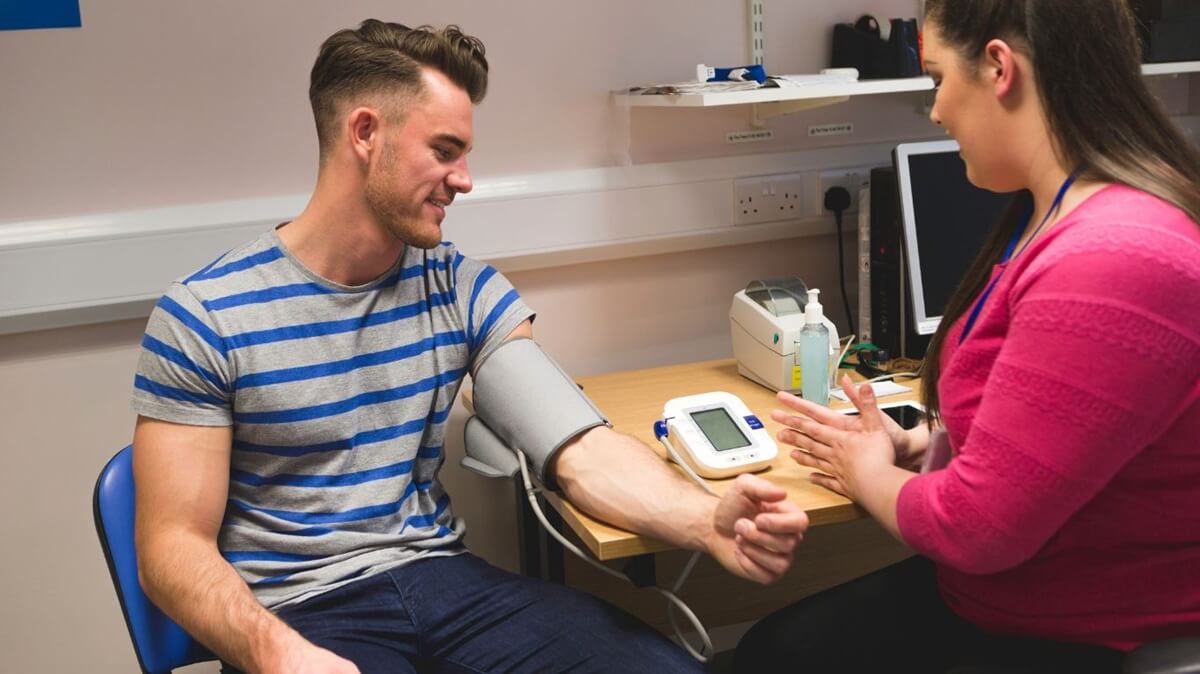Regular Health Check-Ups for Men: What to Expect at Your First GP Visit

Taking care of your health isn’t just about treating illnesses—it’s about preventing them before they start. Regular check-ups help identify potential health risks early, ensuring you stay in peak condition. At Buderim Medical Centre, our dedicated team provides comprehensive men’s health check-ups tailored to your needs.
Why Regular Health Check-Ups for Men Important
Many serious conditions, such as heart disease, diabetes, high blood pressure, and prostate issues, develop silently. Routine health checks allow your doctor to detect early warning signs, giving you more options for treatment and better long-term outcomes.
These check-ups also provide an opportunity to discuss lifestyle, mental health, and preventative care. Whether it’s managing stress, improving diet and exercise, or assessing risk factors for chronic illnesses, regular check-ups support overall well-being.
What to Expect During Your Men's Health Check-Up
Regular men’s health check-ups are a key part of taking control of your health. Personalised to your age, medical history, and lifestyle, this comprehensive check-up helps identify potential health concerns early, providing you with the information you need to make proactive decisions about your well-being. Here’s what you can expect during your first GP check-up:
Comprehensive Health Assessment
Your GP will take a holistic approach to assessing your health, considering medical history, lifestyle choices, and current concerns to identify potential risks and tailor preventative care.
- They will review your family history for hereditary conditions, assess any chronic or past illnesses like diabetes or hypertension, and address any symptoms or discomfort you may be experiencing. Medications and supplements will also be evaluated to ensure they are appropriate and safe.
- Your lifestyle habits—including diet, exercise, smoking, alcohol consumption, and stress levels—play a crucial role in your overall well-being. Your GP will discuss these factors and provide personalised guidance to optimise your health. Sleep patterns and mental well-being will also be assessed, with referrals available if further support is needed.
- A confidential discussion about sexual health can address concerns like erectile dysfunction or STIs. Finally, your GP will recommend age-appropriate screenings and vaccinations to support long-term disease prevention and overall health maintenance.
Physical Examination
A key part of your check-up is the physical examination. Your GP will assess your overall health through several important tests and checks, including:
- Blood Pressure, Heart Rate, and BMI: Blood pressure measurements, heart rate, and BMI help assess your cardiovascular health and risk for conditions like hypertension, stroke, and heart disease.
- Heart and Lung Health: Your GP will listen to your heart and lungs to identify any irregularities, such as abnormal heart rhythms or lung sounds, that could indicate potential issues.
- Abdominal and Musculoskeletal Checks: The GP will palpate your abdomen to check for any abnormalities in your internal organs, such as the liver or kidneys. A musculoskeletal assessment will also be conducted to evaluate joint flexibility, strength, and any musculoskeletal pain.
Essential Screening Tests
Depending on your age, health status, and family history, your GP may recommend a variety of screening tests, such as:
- Blood Tests: Routine blood work is a critical component of health check-ups. Your doctor will likely test for cholesterol levels, blood sugar, liver and kidney function, and other important biomarkers to detect potential health risks like diabetes, heart disease, and liver dysfunction.
- Prostate Screening: For men aged 50+ or those with a family history of prostate cancer, screening may include a prostate-specific antigen (PSA) test or a digital rectal exam (DRE) to detect early signs of prostate cancer.
- Testicular Examination: Your GP will check for any lumps, tenderness, or changes in your testicles. Early detection of testicular cancer improves the chances of successful treatment.
- Bowel Cancer Screening: Men over 50 should be screened for bowel cancer. Your GP may recommend a faecal occult blood test (FOBT) or a colonoscopy based on your risk factors.
- Skin Cancer Checks: Regular skin checks for new or changing moles are vital for early detection of skin cancer. Your GP will examine your skin and advise on any areas that require further attention.
Sexual & Reproductive Health Checks
Confidential consultations will focus on concerns related to sexual health, offering support for:
- Erectile Dysfunction: Your GP will discuss possible causes of erectile dysfunction (ED), such as stress, medication side effects, or underlying health conditions like diabetes, and suggest treatment options or referrals to specialists.
- STIs (Sexually Transmitted Infections): Your GP will discuss the importance of STI testing, provide screenings, and offer guidance on prevention and safe sexual practices.
Fertility and - Contraception: If you’re having trouble with fertility or seeking advice on contraception, your GP will offer confidential support and recommend further evaluations or treatments if needed.
Mental Health & Wellbeing
Your overall health involves both physical and mental well-being. During the check-up, your GP will:
- Discuss Stress, Anxiety, and Depression: If you’re feeling overwhelmed or noticing symptoms of anxiety or depression, your GP will offer support, suggest coping strategies, or refer you to a mental health professional for further evaluation and treatment.
- Address Sleep Disorders: If you’re experiencing persistent sleep disturbances, your GP will explore potential causes, provide sleep hygiene tips, or refer you for a sleep study if conditions like sleep apnoea are suspected.
How Often Should Men Have a Health Check-Up?
The ideal frequency of check-ups varies based on age, health status, and individual risk factors. Regular visits help detect issues early and support long-term well-being.
- Under 40: A check-up every 2–3 years is recommended unless specific health concerns arise.
- 40–50 years: Every 1–2 years, with a focus on heart health, cholesterol, blood pressure, and early cancer screenings.
- 50+ years: Annual check-ups are essential, including prostate and bowel cancer screening, along with ongoing monitoring of chronic conditions.
Your GP may recommend more frequent visits if you have existing health conditions or a family history of chronic disease.
Routine check-ups give you the tools to stay ahead of potential health issues and make informed decisions about your well-being. At Buderim Medical Centre, our experienced male GPs provide thorough, personalised care to support your health at every stage of life.
Conclusion
Book your men’s health check-up today by calling (07) 5456 1011. If you live in Buderim or surrounding Sunshine Coast areas, including Forest Glen, Maroochydore, Kuluin, Kunda Park, Alexandra Headland, Mountain Creek, Sippy Downs, Palmview, Peregian Springs, Buddina, and Mooloolaba, we’re here to support your health journey.





